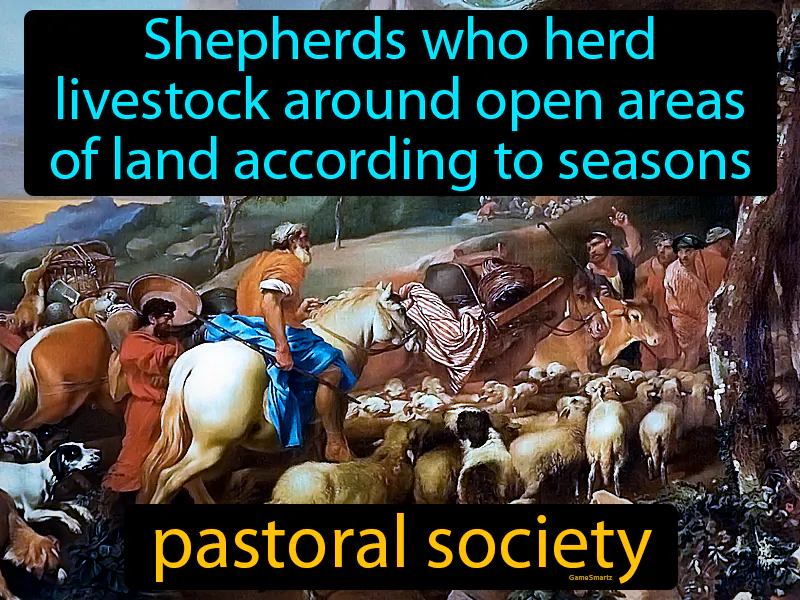Pastoral Society

Shepherds who herd livestock around open areas of land according to seasons
Real World Example
In history, pastoral societies played a crucial role in the development of human civilization by providing a way to use land that wasn't suitable for farming, thus complementing early farmers and city dwellers. They addressed the problem of food production in areas where agriculture was difficult, ensuring a stable food supply through livestock like sheep, goats, and cattle. The mobility of pastoral societies allowed them to adapt to environmental changes and trade with settled communities, fostering cultural and economic exchanges. Today, the concept of pastoralism still matters as it contributes to biodiversity and supports livelihoods in areas where agriculture is challenging, such as certain parts of Africa and Central Asia. For example, in Mongolia, nomadic herders continue to practice traditional pastoralism, maintaining cultural heritage while providing meat, milk, and wool to local and global markets.
Practice Version
